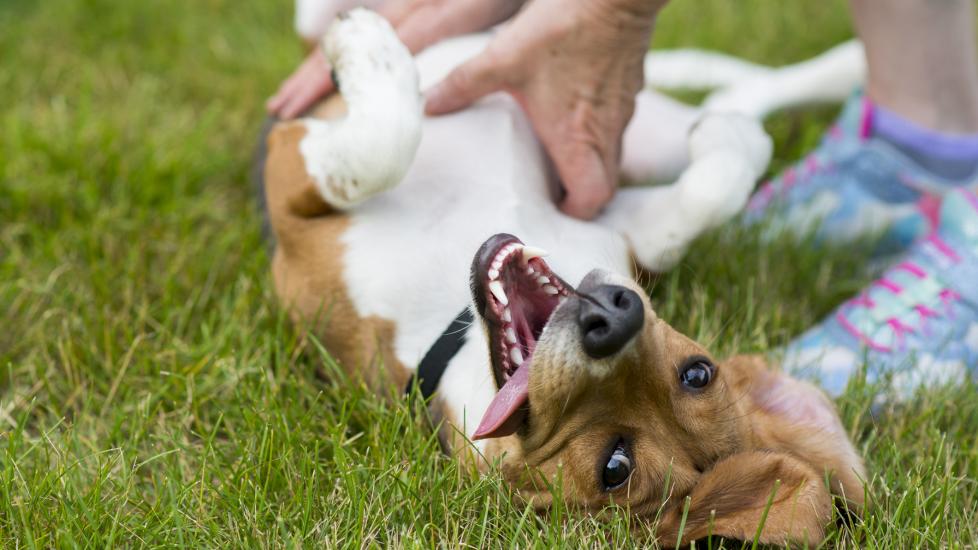Dogs are one of the most beloved companions on this planet, known for their unwavering loyalty and affectionate nature. One of the most delightful interactions between dogs and humans is when a dog rolls over onto its back, exposing that inviting belly just begging to be rubbed. But have you ever wondered why do dogs like belly rubs so much? Is it simply because they enjoy the sensation, or could there be deeper reasons behind this endearing behavior? Let’s delve into the fascinating world of canine body language and communication to understand what those puppy eyes and wriggling tummies might be telling us.
Firstly, let’s address the obvious: the physical pleasure factor. The belly area of a dog contains a multitude of nerve endings, which makes it an extremely sensitive region. When we gently stroke or scratch this area, it creates a pleasurable sensation akin to scratching your own itch—only magnified several times over for our furry friends. This tactile stimulation releases feel-good hormones such as oxytocin in both pets and pet owners, fostering a bond built upon mutual happiness. It’s no wonder then that dogs often seem to melt into a puddle of contentment during these moments!
However, there’s more to it than mere physical gratification. For many dogs, rolling over exposes their most vulnerable spot, signaling trust and submission. By allowing someone access to their soft underbelly with open paws raised off the ground, they are saying “I trust you” without uttering a word. In pack dynamics among wild canines, submissive displays help maintain social harmony; domesticated dogs still carry remnants of these instincts despite living cushioned lives alongside humans. Therefore, offering up their bellies may be seen by some dogs as a way to strengthen relationships within their human family unit.
Moreover, belly rubs serve as positive reinforcement for good behavior. Dogs quickly learn through associative learning that being calm and relaxed while lying on their backs usually leads to enjoyable outcomes (i.e., getting scratched). Thus, they become conditioned to present themselves willingly whenever they want attention from their favorite person(s). Additionally, if given after feeding time or play sessions when blood sugar levels rise naturally due to increased energy expenditure, belly scratches could even be interpreted by some scientists as part of an instinctual grooming ritual where animals groom each other post-mealtime before settling down again.
Last but not least, let’s consider the emotional aspect here too. Just like how hugs make us feel comforted and secure, cuddles involving belly rubs provide similar feelings for our four-legged buddies. They offer reassurance at stressful times – whether caused by separation anxiety when left alone all day or fear induced by loud noises outside – helping reduce stress hormone production while increasing serotonin levels responsible for maintaining mood balance. A quick session filled with gentle strokes across the tummy might work wonders in calming anxious souls under your roof!
In conclusion, understanding why dogs love belly rubs goes beyond simple touch preferences; instead, it reveals complex layers of communication based on trust building exercises coupled with physiological responses designed by evolution itself. So next time Fido flips onto his side looking longingly at you expectantly – remember he isn’t merely seeking temporary satisfaction; rather, he wants nothing less than full-on bonding bliss combined with therapeutic effects only achievable via loving hands running circles around him!
